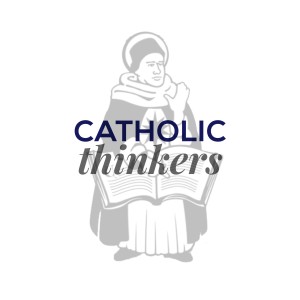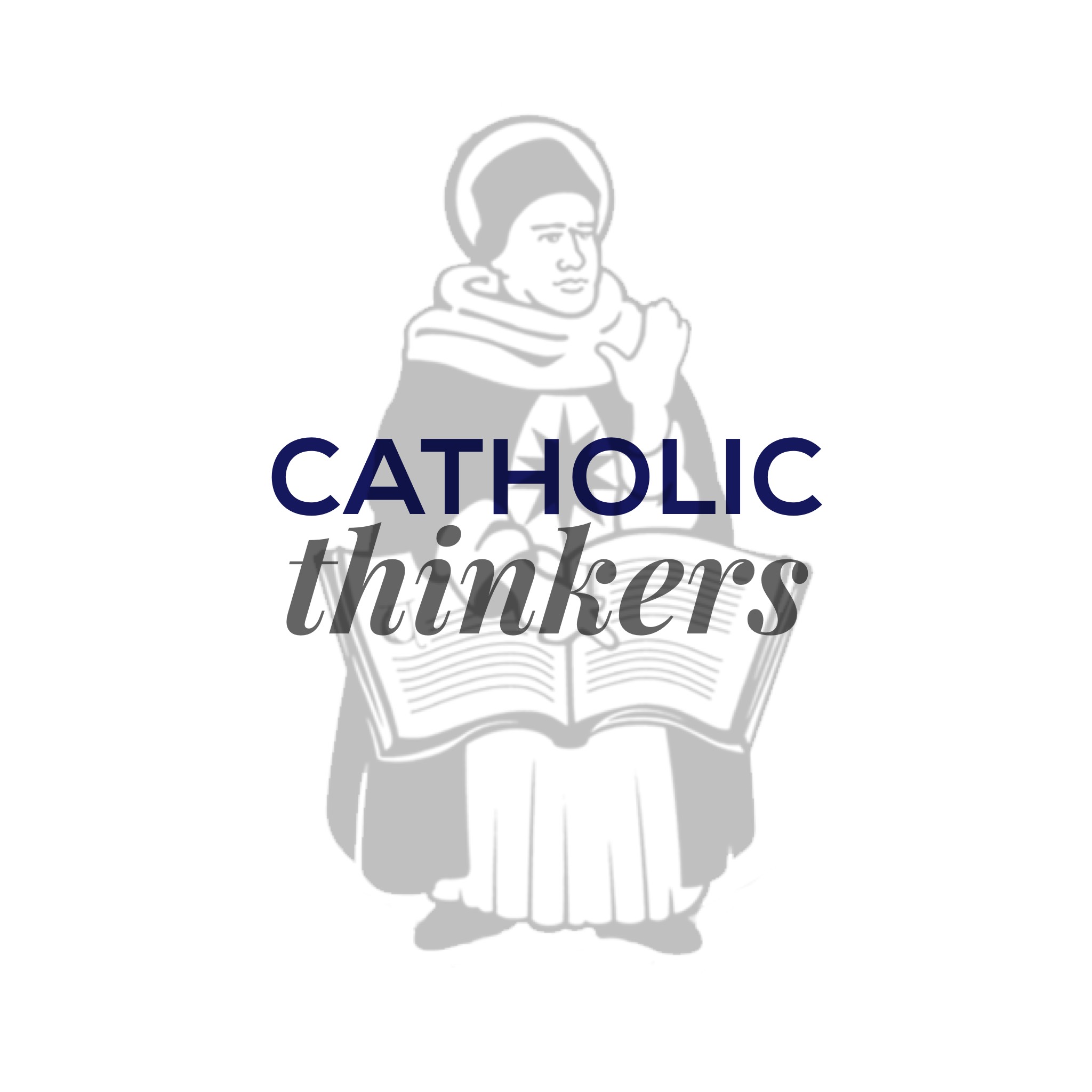Episodes

Thursday Feb 24, 2022
Catholic Modernism by James Hitchcock: 6. The Condemnation, Aftermath
Thursday Feb 24, 2022
Thursday Feb 24, 2022
In this course, we discuss the origin, roots, and character of “Modernity” in general and then take a look in particular at the work of some nineteenth century writers called the “Catholic Modernists”: the intellectual milieu in which they worked, their views on the Bible, philosophy, history, and culture, and the response they received from the Church. Finally we will attempt an examination of the elements of their legacy within the Church.

Wednesday Feb 23, 2022
Catholic Modernism by James Hitchcock: 5. American Modernists
Wednesday Feb 23, 2022
Wednesday Feb 23, 2022
In this course, we discuss the origin, roots, and character of “Modernity” in general and then take a look in particular at the work of some nineteenth century writers called the “Catholic Modernists”: the intellectual milieu in which they worked, their views on the Bible, philosophy, history, and culture, and the response they received from the Church. Finally we will attempt an examination of the elements of their legacy within the Church.

Tuesday Feb 22, 2022
Catholic Modernism by James Hitchcock: 4. More Modernists
Tuesday Feb 22, 2022
Tuesday Feb 22, 2022
In this course, we discuss the origin, roots, and character of “Modernity” in general and then take a look in particular at the work of some nineteenth century writers called the “Catholic Modernists”: the intellectual milieu in which they worked, their views on the Bible, philosophy, history, and culture, and the response they received from the Church. Finally we will attempt an examination of the elements of their legacy within the Church.

Monday Feb 21, 2022
Catholic Modernism by James Hitchcock: 3. Alfred Loisy, George Tyrrell
Monday Feb 21, 2022
Monday Feb 21, 2022
In this course, we discuss the origin, roots, and character of “Modernity” in general and then take a look in particular at the work of some nineteenth century writers called the “Catholic Modernists”: the intellectual milieu in which they worked, their views on the Bible, philosophy, history, and culture, and the response they received from the Church. Finally we will attempt an examination of the elements of their legacy within the Church.

Sunday Feb 20, 2022
Catholic Modernism by James Hitchcock: 2. The Church and the Modern World
Sunday Feb 20, 2022
Sunday Feb 20, 2022
In this course, we discuss the origin, roots, and character of “Modernity” in general and then take a look in particular at the work of some nineteenth century writers called the “Catholic Modernists”: the intellectual milieu in which they worked, their views on the Bible, philosophy, history, and culture, and the response they received from the Church. Finally we will attempt an examination of the elements of their legacy within the Church.

Saturday Feb 19, 2022
Catholic Modernism by James Hitchcock: 1. What is Modernity?
Saturday Feb 19, 2022
Saturday Feb 19, 2022
In this course, we discuss the origin, roots, and character of “Modernity” in general and then take a look in particular at the work of some nineteenth century writers called the “Catholic Modernists”: the intellectual milieu in which they worked, their views on the Bible, philosophy, history, and culture, and the response they received from the Church. Finally we will attempt an examination of the elements of their legacy within the Church.

Friday Feb 18, 2022
Friday Feb 18, 2022
Vatican II said in its Decree on the Training of Priests (Optatus Totius), 1965 n.16:
Special care should be given to the perfecting of moral theology. Its scientific presentation should draw more fully on the teaching of Holy Scripture and should throw light on the exalted vocation of the faithful in Christ and their obligation to bring forth fruit in charity for the life of the world.
This course discusses the formation of Catholic moral theology as based upon Sacred Scripture, with the guiding light of Sacred Moral Tradition. It deals with the moral theology of both the Old and New Testaments and covers in special detail the theological virtues of faith, hope, and charity.

Thursday Feb 17, 2022
Thursday Feb 17, 2022
Vatican II said in its Decree on the Training of Priests (Optatus Totius), 1965 n.16:
Special care should be given to the perfecting of moral theology. Its scientific presentation should draw more fully on the teaching of Holy Scripture and should throw light on the exalted vocation of the faithful in Christ and their obligation to bring forth fruit in charity for the life of the world.
This course discusses the formation of Catholic moral theology as based upon Sacred Scripture, with the guiding light of Sacred Moral Tradition. It deals with the moral theology of both the Old and New Testaments and covers in special detail the theological virtues of faith, hope, and charity.

Wednesday Feb 16, 2022
Wednesday Feb 16, 2022
Vatican II said in its Decree on the Training of Priests (Optatus Totius), 1965 n.16:
Special care should be given to the perfecting of moral theology. Its scientific presentation should draw more fully on the teaching of Holy Scripture and should throw light on the exalted vocation of the faithful in Christ and their obligation to bring forth fruit in charity for the life of the world.
This course discusses the formation of Catholic moral theology as based upon Sacred Scripture, with the guiding light of Sacred Moral Tradition. It deals with the moral theology of both the Old and New Testaments and covers in special detail the theological virtues of faith, hope, and charity.

Tuesday Feb 15, 2022
Tuesday Feb 15, 2022
Vatican II said in its Decree on the Training of Priests (Optatus Totius), 1965 n.16:
Special care should be given to the perfecting of moral theology. Its scientific presentation should draw more fully on the teaching of Holy Scripture and should throw light on the exalted vocation of the faithful in Christ and their obligation to bring forth fruit in charity for the life of the world.
This course discusses the formation of Catholic moral theology as based upon Sacred Scripture, with the guiding light of Sacred Moral Tradition. It deals with the moral theology of both the Old and New Testaments and covers in special detail the theological virtues of faith, hope, and charity.

